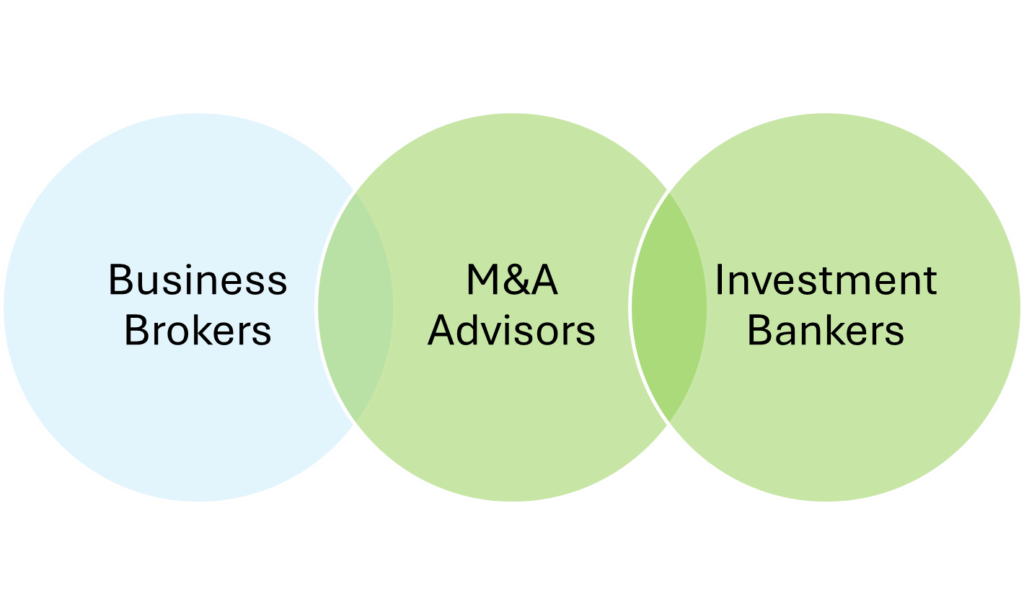An estimated 10,000 business intermediaries operate across the U.S., helping business owners sell their companies under various titles such as Business Broker or Investment Banker. As advisors in the lower middle market, we have been referred to as business brokers, advisors, and investment bankers by our clients and their attorneys and accountants, highlighting how these designations are often misunderstood in the private company world.
Prospective business sellers should take the time to understand the differences before choosing an advisor to assist with the sale of their company. A firm’s title is far less important than its capabilities, and we know some self-described business brokers who are highly skilled at professionally managing lower middle market transactions. However, many others lack the necessary expertise, making it essential to look beyond labels and focus on actual capabilities. The outline below highlights the key differences between business brokers, M&A advisors, and investment bankers, serving as a guide to help identify the best fit for a private company transaction.

Key Differences Between Business Brokers, M&A Advisors, and Investment Bankers
| Criteria* | Business Broker | M&A Advisor | Investment Bank |
|---|---|---|---|
| Client Size – Revenue | Under $2 million | $3 – $150 million | $100 million – billions |
| Deal Value | Under $1 million | $2 – $200 million | $100 million – billions |
| Buyers | Mostly individuals | All types – corporations, private equity, high net worth individuals, and investor groups. | Corporations and private equity – usually have very limited buyer lists due to the size of the companies. |
| Certifications, Licenses** | CBI, real estate licenses are required in some states, such as FL and CA. | M&AMI, CM&AA, CM&AP. May have FINRA Series 79, 63 (states). | FINRA Series 7, 79, 82, 63, and others, depending on the role of the advisor. |
| Services | Selling businesses to individuals. | Sell-side advisory, buy-side advisory, valuation, value. | The same as M&A Advisors but also raises capital. |
- * There is often significant overlap in the services and skill levels of Business Brokers, M&A Advisors, and Investment Bankers. Business owners should evaluate their specific needs and match them to the capabilities of the relevant broker or advisory firms. Revenue and deal size guidelines are general estimates and may vary depending on the firm or type of business.
- ** In 2022, federal legislation (HR 2617) was enacted, significantly exempting brokers and advisors from FINRA licensing requirements for transactions involving companies with less than $250 million in revenue or $25 million in EBITDA. While some M&A advisor brokers have chosen to maintain their licenses, most M&A advisors are no longer FINRA licensed.
Conclusion
While Business Brokers, M&A Advisors, and Investment Bankers all play a role in selling businesses, each brings unique strengths and areas of overlap that suit different circumstances. Success in a business sale depends on aligning your company’s attributes and goals with the expertise and approach of the advisor you choose. A thoughtful match can transform a good deal into an exceptional one.
